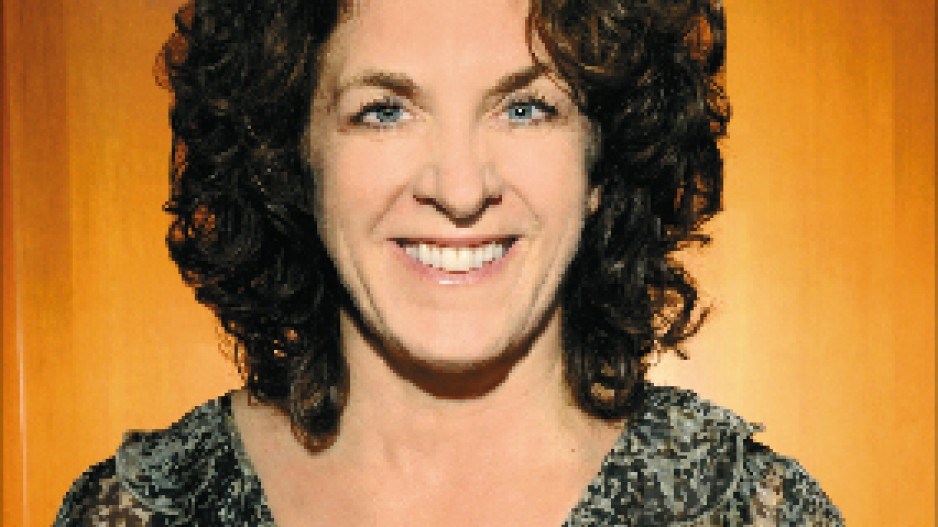Vancouver financial consultant Jill Leversage sees honesty, fairness and her unique successes as a woman in investment banking as key to her influence.
"People would say I'm influential because I'm unusual – there aren't many heads of investment banking even in a regional sense who are women," said Leversage, whose most recent role was as managing director and team leader, Pacific region, for TD Securities.
"If you would ask the people who worked for me why I'm influential, it's because I have a very strong sense of honesty and fairness."
Leversage said she learned lessons about fairness as a mother to her two daughters and a son, now 22, 20 and 17.
"When you have kids, you can set the rules," she said. "They're not all necessarily rational rules, but fairness among the children is really important from a child's perspective."
And fairness is an important criterion in management. "There are a number of similarities between managing a young group of professionals and managing your children."
Leversage spent her own childhood growing up in Creston in the Kootenays, leaving to earn a bachelor of commerce, accounting and management information systems at the University of Calgary. Her father, brother and husband are all accountants.
Her first job as a chartered accountant was in 1984 in Vancouver with Thorne Riddell (now KPMG) in the valuation and litigation support group.
There, Leversage worked with John Palmer, one of three mentors over the years who coached and supported her. "I really admired him for his work ethic and the principles on which he operated."
Leversage moved into investment banking at Burns Fry, part of what came to be BMO Financial Group, where she was mentored by Peter Powell and rose to become a vice-president.
In 1993, she was hired as a vice-president at RBC Capital Markets and was promoted five years later to managing director for the Vancouver office.
Mark Cullen became the latest of her mentors.
"They gave me the confidence and helped pave the way because I was so different in that time, just being there as a woman," said Leversage. "I showed huge commitment, and they rewarded me by helping me move through increasingly responsible roles."
How huge a commitment?
"When I had my first child, I came back after five days and worked while my child was in intensive care." All three babies were premature.
Leversage points to her home team as crucial to her success. "I've had the same husband for 25 years who's been a huge supporter and helped me in every way," she said. "But I've also had a live-in caregiver for my children who has been part of our team for 23 years."
Leversage faced her own health challenge when she was diagnosed with breast cancer at age 40 and endured bilateral mastectomies.
Encouraged by Cullen to be the lead of a team, she moved in 2002 to TD Securities where she led and directed a team of 12, providing investment and corporate banking advice and execution to B.C.'s top companies in the forestry, mining, government and technology sectors.
Then, last spring, management for the Vancouver group was shifted to Calgary and she was made redundant.
"They would like me to say that I retired," said Leversage. "I was terminated totally without cause and compensated that way. I got a nice package."
Leversage sees TD's decision as partly cost-cutting – "I was being paid the most" – and perhaps the result of her own mentoring.
"I had brought my team along. I had really tried to give them good career paths, and so had stepped aside a little maybe more than I should have."
In the 10 months since, Leversage has enjoyed travelling with her husband David Gray and children, coaching and advising several companies and their management teams, and being involved in charitable work that has always been part of her life.
"I'm very much rested," she said. "For the first time in 30 years I never wake up tired."
Now she's eager for a job and has signed up with Knightsbridge Human Capital Solutions to help find the right opportunity.
"I have to get people to think of my skill-set and apply it differently. So that's the challenge. As an investment banker, you're always advising people. Then you do a transaction and you walk away. I'd like to be more on the operating side where you're actually implementing the decisions rather than just executing and leaving."Â •




